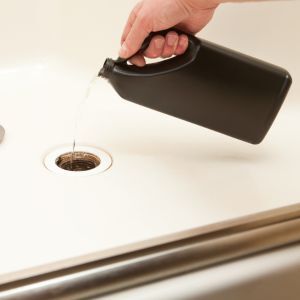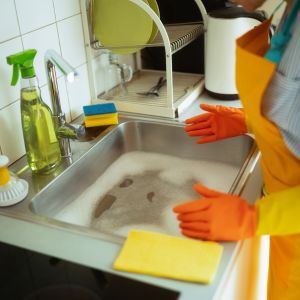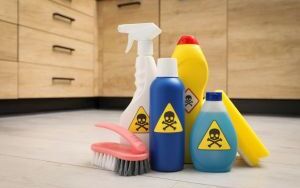Enzyme vs Chemical Drain Cleaners: What’s Best for NZ Commercial Facilities?
Keeping drains clean is a non-negotiable for New Zealand’s commercial facilities, whether it’s a busy restaurant, healthcare centre, school, or office building. A blocked or smelly drain can disrupt operations, damage reputations, and result in expensive plumbing bills. Choosing the right drain cleaner is crucial—but should you opt for enzyme-based cleaners or chemical cleaners?
This guide compares both approaches, helping NZ businesses make an informed decision that balances hygiene, cost, safety, and sustainability.
What Are Chemical Drain Cleaners?
Chemical drain cleaners typically contain caustic agents like sodium hydroxide, sulphuric acid, or bleach. These substances work by generating heat and breaking down clogs quickly.
Pros:
-
Fast-acting: Effective on severe clogs and emergencies.
-
Widely available: Stocked in most supermarkets and hardware stores.
Cons:
-
Health & safety risks: Can cause burns, eye damage, and respiratory issues.
-
Pipe damage: Corrosive chemicals may erode older plumbing systems.
-
Environmental impact: Toxic residues can enter waterways.
-
Temporary fix: Often clears immediate blockages but doesn’t prevent future build-up.
What Are Enzyme Drain Cleaners?
Enzyme drain cleaners use natural proteins to break down organic waste like fats, oils, grease, soap scum, and food debris. Rather than dissolving blockages with heat or caustics, enzymes accelerate natural biodegradation.
Pros:
-
Safe and non-toxic: Biodegradable and safe for staff, customers, and plumbing systems.
-
Prevents future blockages: Effective for long-term maintenance, not just emergencies.
-
Odour control: Digests the waste that causes smells.
-
Eco-friendly: Reduces chemical discharge into NZ waterways.
Cons:
-
Slower action: Not as effective on severe or immediate blockages.
-
Requires regular use: Best used as part of a preventative maintenance schedule.
Comparison Table – Enzyme vs Chemical Cleaners
Feature |
Enzyme Cleaners |
Chemical Cleaners |
|
Action Speed |
Gradual, preventative |
Immediate, emergency use |
|
Safety |
Non-toxic, safe for pipes |
Hazardous, risk of burns & fumes |
|
Environmental Impact |
Biodegradable, eco-friendly |
High, toxic residues |
|
Maintenance Value |
Excellent for regular upkeep |
Limited, temporary fix |
|
Cost Effectiveness |
Saves money long-term |
Can lead to pipe damage & repairs |
|
Best Use |
Preventing build-up, odour-free drains |
Emergency blockages only |
What NZ Experts Recommend
Plumbing professionals in New Zealand increasingly recommend enzyme cleaners for ongoing maintenance and chemical cleaners only as a last resort. Guidance from industry bodies such as Master Plumbers NZ and trade publications like Plumbing Connection highlight the importance of safer, sustainable alternatives to caustic drain cleaners. These sources explain that while chemical products can be useful in emergencies, their hazards to staff, pipes, and the environment make them unsuitable for routine use. Enzyme-based cleaners, by contrast, are consistently recognised as effective for long-term maintenance, odour prevention, and workplace safety in commercial facilities.
Practical Tips for NZ Facilities
-
Create a Maintenance Schedule
Use enzymes weekly in high-traffic facilities (restaurants, schools, hospitals) and monthly in lower-use environments (offices). -
Reserve Chemicals for Emergencies
Keep a chemical cleaner on hand for rare severe clogs, but rely on enzymes for daily or weekly upkeep. -
Train Staff on Safe Use
Enzyme products are safer than chemicals but should still be handled according to supplier instructions. -
Track Cost Savings
Compare plumbing call-outs and downtime before and after implementing an enzyme cleaning programme.
FAQ – Choosing Between Enzyme and Chemical Cleaners
Do enzyme cleaners work in grease traps?
Yes. Enzymes reduce grease build-up, which can extend the time between professional servicing.
Are chemicals ever necessary?
Yes, but rarely. They are best reserved for emergency clogs that enzymes cannot manage alone.
Can enzymes handle large facilities?
Yes. Enzymes scale well for use in multi-storey office buildings, commercial kitchens, and healthcare centres.
Are enzyme cleaners more expensive than chemicals?
The upfront cost can be higher, but enzymes save money by reducing emergency plumbing bills and protecting pipe infrastructure.
Final Thoughts
For NZ commercial facilities, the most effective approach is preventative care with enzyme drain cleaners, using chemicals only when absolutely necessary. Enzymes protect plumbing, reduce long-term costs, and support a healthier, eco-friendly workplace environment.
At Insinc Products, we provide a full range of enzyme-based drain cleaning solutions for NZ businesses. Contact us today to learn how enzymes can improve hygiene, reduce odours, and save money in your facility.
Posted: Friday 19 September 2025



